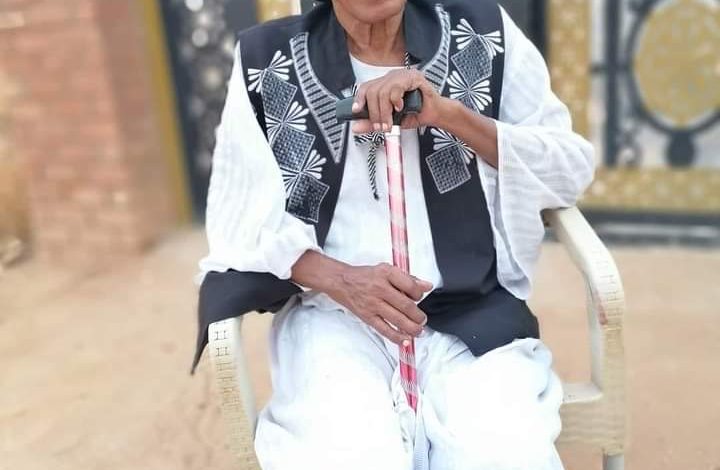Fine in Omdurman .. Al-Nour Al-Jilani… the artist of unity and homeland

Sudan Events – Magda Hassan
Fans of the artist Al-Nour Al-Jilani are active in reassuring his fans about his condition and health, and the content creator, Saddam Al-Jezouli, documented a reassuring visit to the artist, and he said, “Now, from within Omdurman, we have recorded a visit to the towering artistic pyramid, Al-Nour Al-Jilani. May God bless him with health and wellness. We are thankful and appreciative of the hospitality and good reception, and I reassure you that he is fine… a beautiful visit that brought us joy and happiness.”
In a joke on social media pages, Al-Nour Al-Jilani’s fans say that he predicted what would happen in Khartoum when she sang (Let my people leave Khartoum, my people will leave it).
Haqeeba songs
“Al-Nour Al-Jilani Omar Muhammad Nour, and this is his full name, was born in the village of Abu Halima, on the outskirts of the city of Khartoum Bahri, Sudan, in 1944. He studied the primary and middle stages of his education at both the Shambat Western Primary School in Khartoum Bahri and the Coptic Middle School, respectively, where his singing talents emerged. He excelled in school artistic activities, singing Haqeeba songs.
Addressing a problem
Al-Nour Al-Jilani is nicknamed “Tarzan.” He is married and has one son, Ahmed. The topics of Al-Jilani’s songs are diverse and distinguished by their quality in terms of form and content. In terms of content, it addresses different issues and addresses specific social groups or age groups such as children. Perhaps what brings this together is the song “Thoughts of an Elephant” by the poet Hassan Bara, in which children participate and speaks in the mouth of a baby elephant that has been captured, and at the same time it addresses the problem of protecting animals. Her rights and freedom. The text of the song calls for kindness to the sad elephant that was uprooted from its environment and captured in a cage for human entertainment.
Beauty style
In terms of form, the texts of his songs are distinguished by their aesthetic style, rich in meanings, statement, and puns. The most prominent example of this is the song “Kadrawiya,” in which the poet praised the beauty of his beloved Kadarawiya, “the girl of the Kadaru neighborhood in Khartoum Bahri, whose beauty the moon descended from the sky to the earth, dazzled by her beauty, asking about her name and identity, and a bed swirling around him.” He flaps his wings for joy and shouts, saying, “He is a kadrawi.”
Poetry emotion
Gilani also sang of love, human values, pathos, homeland, and unity between the north and the south. This is embodied in the song “Ya Musafir Juba”, which tells the sorrows of northern Sudanese on their way to Juba, the capital of South Sudan, and the song “Vivian”, which expresses the condition of a girl from South Sudan residing in the northern capital, Khartoum. This song gave a great social and political dimension because it gave women in South Sudan a place within the passion of Sudanese lyric poetry.”



